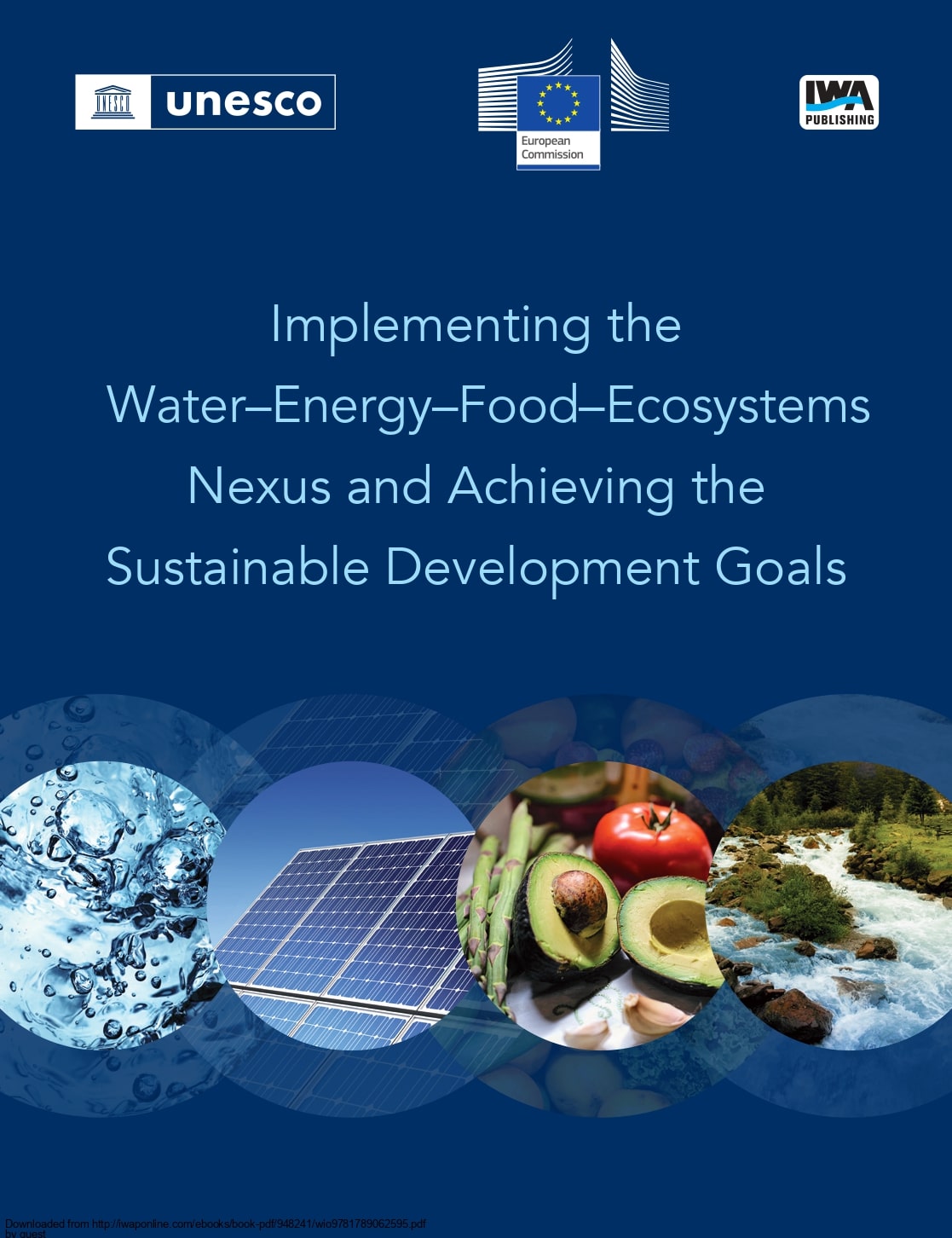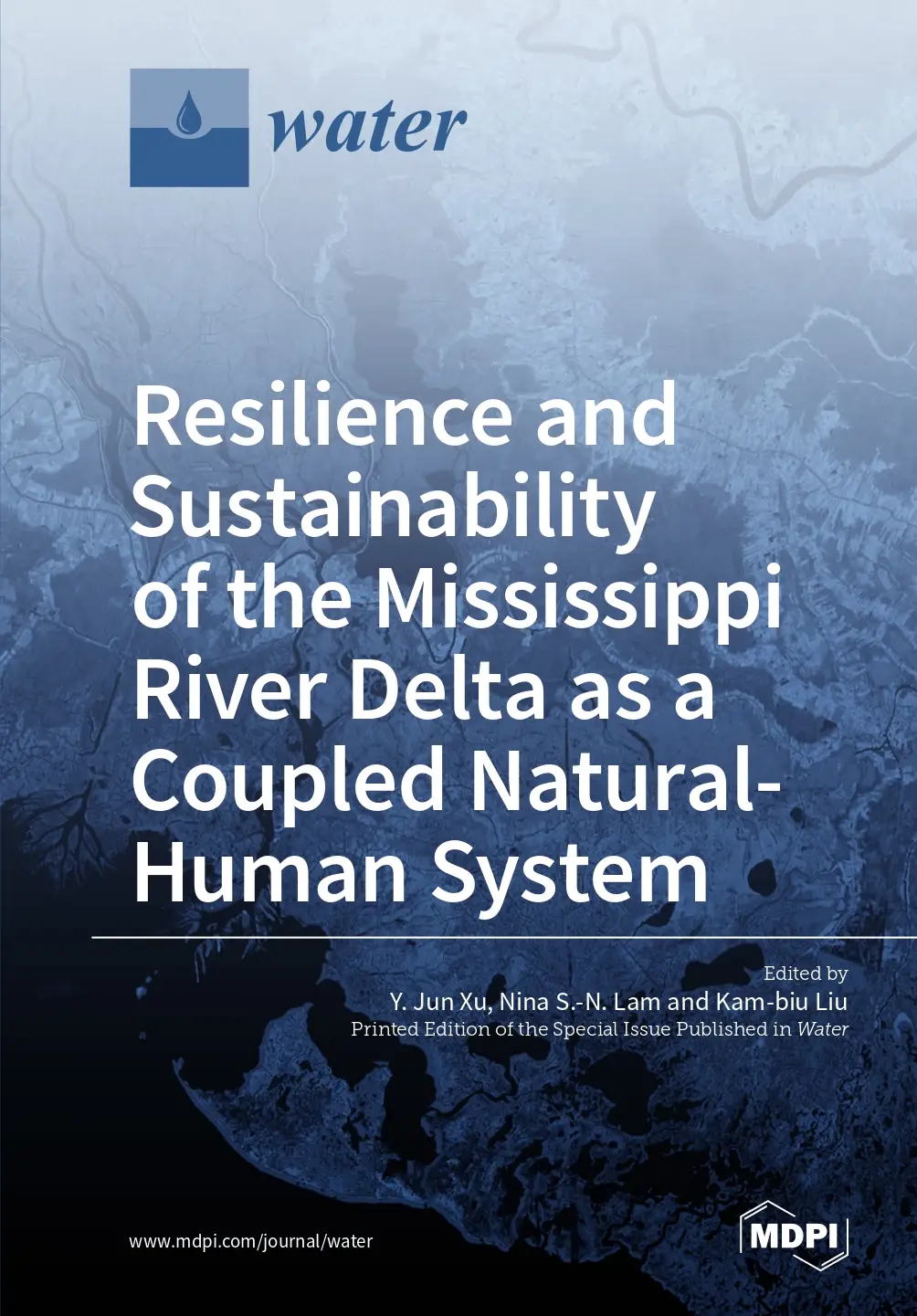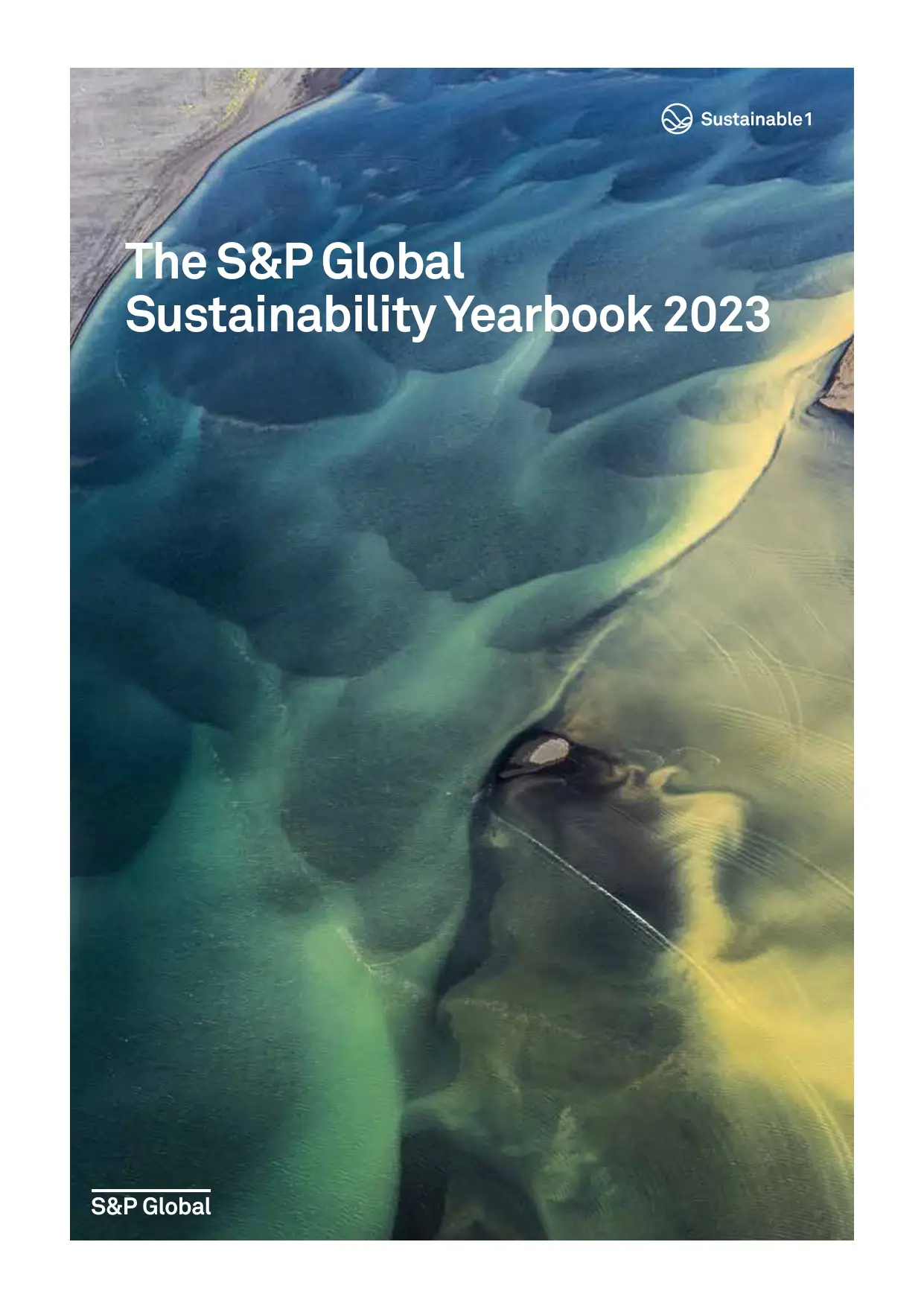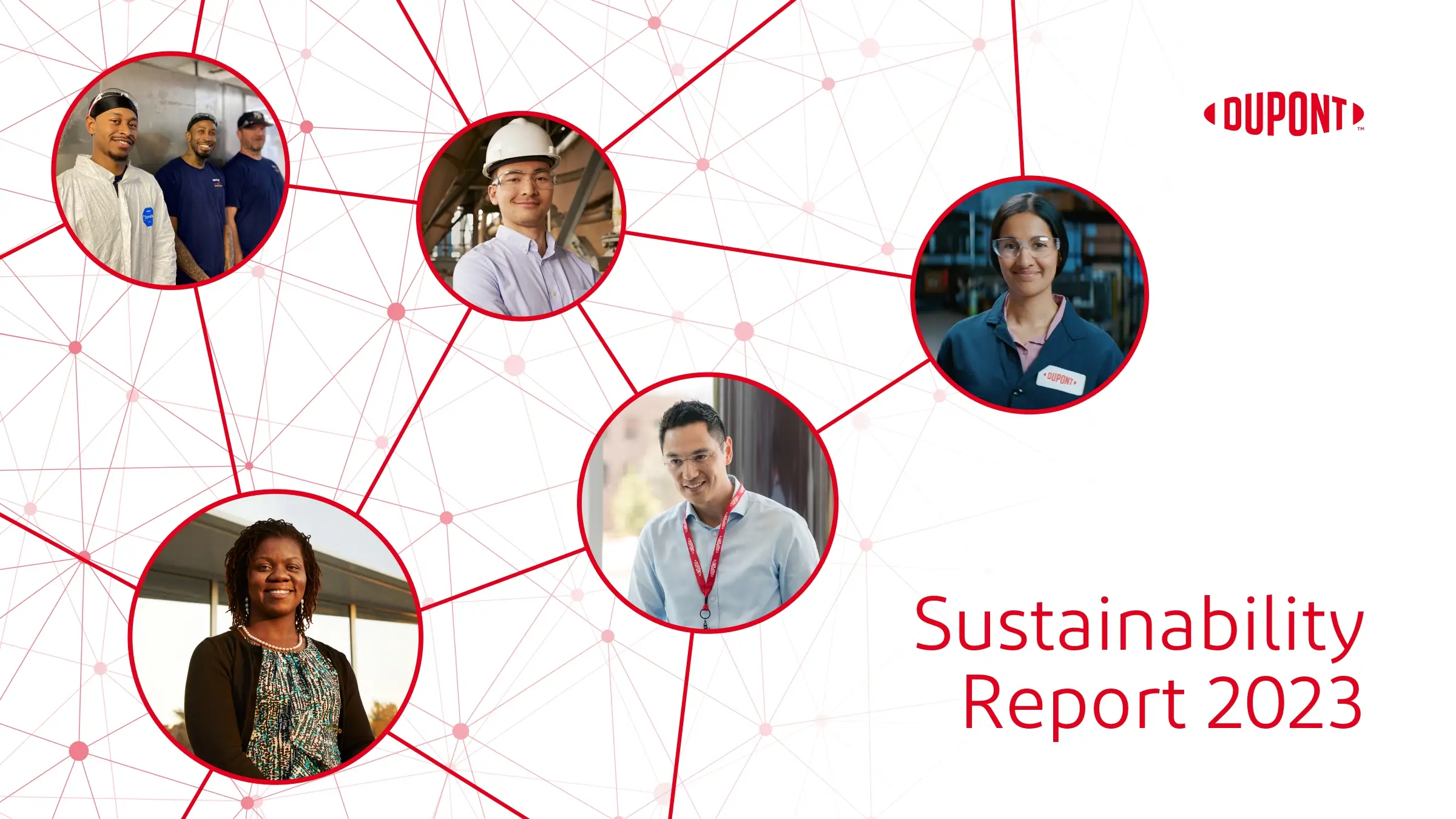Sustainability
International Sustainability Standards Board (ISSB) Climate-Related Disclosure Checklist
Views : 3
International Sustainability Standards Board (ISSB) Climate-Related Disclosure Checklist
Source: https://www.ey.com
Usually dispatched in 2 to 3 days
Usually dispatched in 2 to 3 days
Category:
Sustainability
Only logged in customers who have purchased this product may leave a review.
Related books
Implementing the Water–Energy–Food–Ecosystems Nexus and Achieving the Sustainable Development Goals
This document brings together a number of contributions, case studies, and experiences with the aim of highlighting the importance and benefits of the WEFE Nexus as an approach and methodology for development cooperation in general. It makes special reference to the main conclusions of the WEFE Nexus specific workshop held in Brussels jointly organized by JRC and INTPA and held on 25–26 January 2018. The workshop was oriented towards implementing and operationalizing the Nexus approach with the objective of improving the sustainability of the intervention projects and programmes based on the experience of the Nexus experts in a variety of projects and regions. This document should be read as a practical guide to fully understand key aspects of WEFE Nexus and is presented in non-technical language for ease of access and uptake for a wider audience.
Implementing the Water–Energy–Food–Ecosystems Nexus and Achieving the Sustainable Development Goals
This document brings together a number of contributions, case studies, and experiences with the aim of highlighting the importance and benefits of the WEFE Nexus as an approach and methodology for development cooperation in general. It makes special reference to the main conclusions of the WEFE Nexus specific workshop held in Brussels jointly organized by JRC and INTPA and held on 25–26 January 2018. The workshop was oriented towards implementing and operationalizing the Nexus approach with the objective of improving the sustainability of the intervention projects and programmes based on the experience of the Nexus experts in a variety of projects and regions. This document should be read as a practical guide to fully understand key aspects of WEFE Nexus and is presented in non-technical language for ease of access and uptake for a wider audience.
Enhancing Security Sustainability and Resilience in Energy Food and Water
The concept of security is in our current societies increasingly connected with sustainability, which seeks to ensure that we as humans are able to live and prosper on this planet now and in the future. The concepts of energy security, food security, and water security—used separately or together—manifest the burgeoning linkages between security and sustainability. This book brings together ten scientific articles that look at different aspects of security, sustainability, and resilience with an emphasis on energy, food, and/or water in the context of Finland and Europe. Together, the articles portray a rich picture on the diverse linkages between both energy, food, and water, and between security and sustainability.
Enhancing Security Sustainability and Resilience in Energy Food and Water
The concept of security is in our current societies increasingly connected with sustainability, which seeks to ensure that we as humans are able to live and prosper on this planet now and in the future. The concepts of energy security, food security, and water security—used separately or together—manifest the burgeoning linkages between security and sustainability. This book brings together ten scientific articles that look at different aspects of security, sustainability, and resilience with an emphasis on energy, food, and/or water in the context of Finland and Europe. Together, the articles portray a rich picture on the diverse linkages between both energy, food, and water, and between security and sustainability.
Sustainability Trends for 2023
The effects of climate change on our lives and economies have become unavoidably apparent.
Sustainability Trends for 2023
The effects of climate change on our lives and economies have become unavoidably apparent.
Making The Right Choices For Your Utility: Using Sustainability Criteria For Water Infrastructure Decision Making
Introduction and Purpose of This Guide
Having the capacity to compare a range of infrastructure alternatives objectively is critical to a water or wastewater utility’s long-term sustainability and its ability to serve the needs of its community. This guide is designed to help water and wastewater utilities undertake these critical comparisons, in the context of meeting their existing regulatory requirements and improving the sustainability of utility operations.
This document is designed to supplement the United States Environmental Protection Agency’s (EPA) Planning for Sustainability: A Handbook for Water and Wastewater Utilities (“the Handbook”), issued in February 2012. The Handbook identifies a number of steps utilities can take to incorporate sustainability considerations into their existing planning processes, organized around four core elements of planning
commonly used by utilities:
• PLANNING ELEMENT 1: Goal Setting – Establish sustainability goals that reflect utility and community priorities.
• PLANNING ELEMENT 2: Objectives and Strategies – Establish objectives and strategies for each sustainability goal.
• PLANNING ELEMENT 3: Alternatives Analysis – Analyze a range of alternatives based on consistent criteria.
• PLANNING ELEMENT 4: Financial Strategy – Ensure that investments are sufficiently funded, operated, maintained, and replaced over time.
Making The Right Choices For Your Utility: Using Sustainability Criteria For Water Infrastructure Decision Making
Introduction and Purpose of This Guide
Having the capacity to compare a range of infrastructure alternatives objectively is critical to a water or wastewater utility’s long-term sustainability and its ability to serve the needs of its community. This guide is designed to help water and wastewater utilities undertake these critical comparisons, in the context of meeting their existing regulatory requirements and improving the sustainability of utility operations.
This document is designed to supplement the United States Environmental Protection Agency’s (EPA) Planning for Sustainability: A Handbook for Water and Wastewater Utilities (“the Handbook”), issued in February 2012. The Handbook identifies a number of steps utilities can take to incorporate sustainability considerations into their existing planning processes, organized around four core elements of planning
commonly used by utilities:
• PLANNING ELEMENT 1: Goal Setting – Establish sustainability goals that reflect utility and community priorities.
• PLANNING ELEMENT 2: Objectives and Strategies – Establish objectives and strategies for each sustainability goal.
• PLANNING ELEMENT 3: Alternatives Analysis – Analyze a range of alternatives based on consistent criteria.
• PLANNING ELEMENT 4: Financial Strategy – Ensure that investments are sufficiently funded, operated, maintained, and replaced over time.
Resilience and Sustainability of the Mississippi River Delta as a Coupled Natural- Human System
The Mississippi River Delta (MRD) coastal region contributes an estimated $45 billion in revenue annually to the state of Louisiana and has a natural capital asset value estimated between $330 billion and $1.3 trillion. Draining approximately 3.2 km2 of land, the Mississippi is the largest river in North American with the U.S. largest riverine transport hubs between Baton Rouge and New Orleans and has built the world’s 3rd largest river delta.
Resilience and Sustainability of the Mississippi River Delta as a Coupled Natural- Human System
The Mississippi River Delta (MRD) coastal region contributes an estimated $45 billion in revenue annually to the state of Louisiana and has a natural capital asset value estimated between $330 billion and $1.3 trillion. Draining approximately 3.2 km2 of land, the Mississippi is the largest river in North American with the U.S. largest riverine transport hubs between Baton Rouge and New Orleans and has built the world’s 3rd largest river delta.
Sustainability and Competition
Sustainability has been on the agenda of international organisations, states and, increasingly, private businesses for some time. From a competition agency perspective, regulation to achieve sustainability might be the preferred option. Yet, business action might equally affect sustainability and competition and competition laws are crucial considerations for businesses.
Sustainability and Competition
Sustainability has been on the agenda of international organisations, states and, increasingly, private businesses for some time. From a competition agency perspective, regulation to achieve sustainability might be the preferred option. Yet, business action might equally affect sustainability and competition and competition laws are crucial considerations for businesses.
Environmental Sustainability in Maritime Infrastructures
This Special Issue is entitled “Environmental Sustainability in Maritime Infrastructures”. Oceans and coastal areas are essential in our lives from several different points of view: social, economic, and health. Given the importance of these areas for human life, not only for the present but also for the future, it is necessary to plan future infrastructures, and maintain and adapt to the changes the existing ones. All of this taking into account the sustainability of our planet. A very significant percentage of the world's population lives permanently or enjoys their vacation periods in coastal zones, which makes them very sensitive areas, with a very high economic value and as a focus of adverse effects on public health and ecosystems.
Environmental Sustainability in Maritime Infrastructures
This Special Issue is entitled “Environmental Sustainability in Maritime Infrastructures”. Oceans and coastal areas are essential in our lives from several different points of view: social, economic, and health. Given the importance of these areas for human life, not only for the present but also for the future, it is necessary to plan future infrastructures, and maintain and adapt to the changes the existing ones. All of this taking into account the sustainability of our planet. A very significant percentage of the world's population lives permanently or enjoys their vacation periods in coastal zones, which makes them very sensitive areas, with a very high economic value and as a focus of adverse effects on public health and ecosystems.















Reviews
There are no reviews yet.